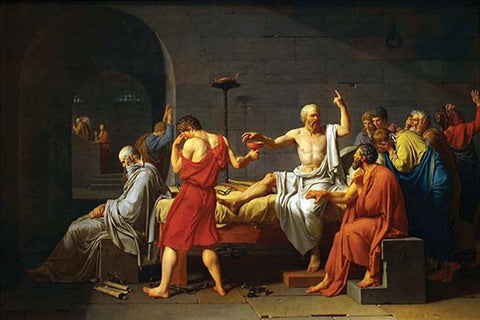
Death of Socrates
The trial of Socrates refers to the trial and the subsequent execution of the classical Athenian philosopher Socrates in 399 BC. Socrates was tried on the basis of two notoriously ambiguous charges: corrupting the youth and impiety (in Greek, asebeia). More specifically, Socrates’ accusers cited two "impious" acts: "failing to acknowledge the gods that the city acknowledges" and "introducing new deities." A majority of the 501 dikasts (Athenian citizens chosen by lot to serve as jurors) voted to convict him. Consistent with common practice, the dikasts determined Socrates’ punishment with another vote. Socrates was ultimately sentenced to death by drinking a hemlock-based liquid. Well-known accounts of the trial are given by two of Socrates’ students, Plato and Xenophon.
We Also Recommend





